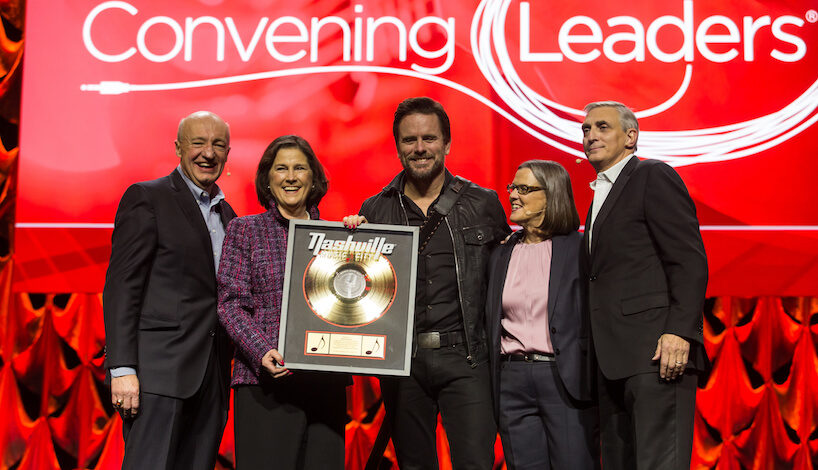If you asked Deborah Sexton where she thought her professional path would go after accepting the role of CEO of PCMA in 2005, the stage in Nashville for Convening Leaders 2018 would not have been on her list. “When I first took the job,” Sexton said before this year’s conference, “I really didn’t think I would be here for more than a year. Then, I saw the challenge ahead. It was so enticing. It was such a promising organization. I wanted to figure out how to help it reach its full potential.”
Fast forward to today: Sexton has taken the organization from 30 employees to a team of 75 — and it’s still growing. Before she steps aside on Jan. 19 to start her own event consulting firm, Sexton reflected on the past 13 years.
1) Let’s think back 13 years ago: If you hadn’t taken the reins at PCMA, what would you have done? Where do you think you would be now?
PCMA came to me when I was at the CCTB (now Choose Chicago), and I was already thinking about moving on. As much as I loved the bureau and the job that we did with a great team, it was becoming repetitive. I’m not good at repetitiveness. At the time, I was thinking about starting my own business. I think I would have started my own business within six months of the time that I started at PCMA.
2) Okay, let’s imagine that we’re still talking to you 13 years ago. Do you have any advice to share to prepare for the road ahead?
Never give up. Be curious. Be positive. Be passionate about what you’re doing. When you’re thinking about whether you want to do a certain job, I think you have to have that reaction in order to be successful.
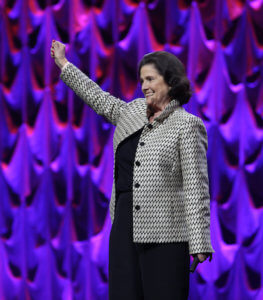
3) Looking back, what’s your fondest memory of your tenure at PCMA?
My fondest memories were truly building the team when I arrived. Today, only three people remain from when I first arrived (Mona Cotton, Sherrif Karamat, and Michelle Russell). When I come into an organization, I spend at least 20 minutes with each employee. It was pretty clear in the basement of McCormick Place that we needed to make some changes. We had some really good people, but they were in the wrong places. It was a total reorganization.
The second memory was moving out of the basement. When I announced we were moving, some people were already packing up their offices within 24 hours. Of course, I had to tell them that we weren’t moving immediately, but that’s when I realized that many of our young team members wanted to be closer to shops, transportation, and the buzz of downtown. There’s no better convention center than McCormick Place, but if you’re young, it was tough to work there on a day-to-day basis. We managed to relocate in about six months, and people were very happy with the fresh start.
4) You’ve earned loads of well-deserved recognition from outside PCMA. Are there any awards/accomplishments that stand out from the rest?
I have to be honest: I’m always surprised when I’m recognized. It reminds you of how important recognition is at any age. There isn’t any one award that I would highlight because I think they all play a special role for me. It’s always an honor to be in the distinguished company of the most recognized members of this industry.
5) There have been many inspiring speakers at Convening Leaders during that same time. Who was the most unforgettable voice at the microphone for your ears?
My very favorite is Sal Khan from the Khan Academy. It took us three years to get him, and it was well worth the wait when he appeared in Boston in 2014. When I first met him backstage, he told me he didn’t even know what he was going to say, which naturally terrified me. But he was a phenomenal, charismatic storyteller.
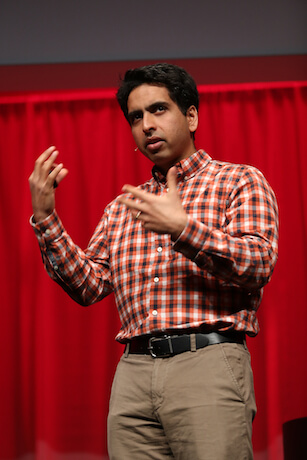
What he’s doing in the education space with advanced preparation and online tools is applicable in the adult education space, too, and it clearly resonated with our audience. He got a standing ovation.
The money we paid went to his foundation, which provides equipment to students. He wasn’t benefiting in any way. He used his fee to advance his cause.
6) A break from serious questions: If you were a chart-topping country music artist, what would your stage name be? And what about the name of your album/first hit song?
Deborah Sexton and the Hijacked Honkytonk Players. I think we could deliver a chart-topping cover of “Leaving On a Jet Plane.” (To truly understand that name, see question #9.)
7) You’ve been on stage a lot over the past 13 years. Do you have a most embarrassing moment you can share?
The most embarrassing was Matthew McConaughey [last year]. I knew our friends in Austin were trying to get him, but I didn’t know he was coming until right before the opening. I walked in to discover that, indeed, he was actually there. I didn’t expect him to deliver. I expected him to come out, be a movie star, and say a simple thank you for coming.
He did such an incredible job selling the city and telling his story, and then, I walked on stage to a teleprompter with a script that had no mention of what had just happened. So I’m thinking to myself, I need to ad-lib something.
Following up a performance from an Oscar-winning actor? That’s no easy assignment.
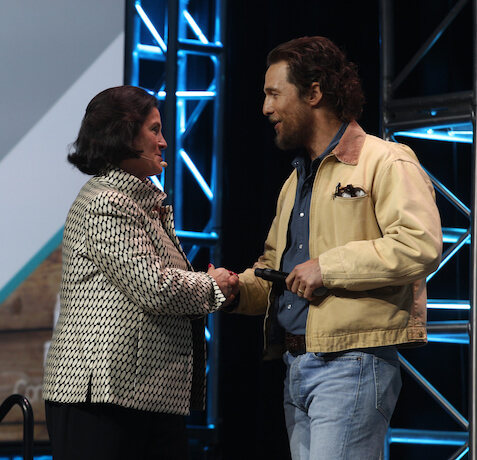
8) The meetings industry has evolved quite a bit since you started at PCMA. What has been the most surprising change?
Honestly, the biggest surprise is how slowly the industry has changed. It’s tremendously frustrating. As an industry, we are too risk-averse, and I don’t think that bodes well for the future. The organizations that aren’t embracing change are going to find themselves in serious trouble. I’m not suggesting that people turn their events upside down each year, but they do need to be comfortable adding new elements and adapting to new ways of delivering education.
9) What’s the biggest secret — okay, maybe not really a secret, but something that very few might know — that you feel like you can share as you prepare to leave PCMA?
I was hijacked in the late 60s to Cuba. I was on my way from Miami to San Juan on Thanksgiving weekend, and that particular weekend alone, there were four flights hijacked from Chicago. Cubans were trying to go home. There were four families onboard, and it was very clear that this was not a deranged person taking over the plane. They simply wanted to get home. We landed in Havana and took a bus to Varadero. Then, after approximately 24 hours, they flew us via a Red Cross airlift where I was interviewed by the FBI.
My father was a pipe and cigar smoker, and while I was there, I bought four or five cigars as a gift and snuck them in my coat pocket. I flew home, and my father greeted me with an immediate question of where the cigars were. I dug in my pocket and pulled out all but one that was broken. My father looked like he might leave me at the airport.
10) Event professionals have a range of big challenges and opportunities on their minds. How should they navigate the next frontier of business events?
I think people in our industry have to challenge the norm. Meeting professionals, hotels, and venues all have to be willing to ask themselves if there are more efficient ways of achieving success. Everyone needs to be curious and be upfront about offering new ideas and new solutions.
11) Looking ahead into your business events crystal ball, where will PCMA plant its flag in the next decade?
The world is a huge place, and the organization is disciplined to focus on APAC, EMEA, and the Americas. We must be focused on establishing a brand in these places first. And it’s not so much a part of the world, but it’s the idea that we, as an organization, want to deliver education and global connections for everyone in the business events industry — no matter where they may be located.
12) Sherrif Karamat is about to take over the reins as CEO (you may have heard of him). Can you share your most important piece of advice for him?
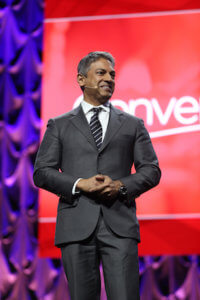
First, always hire people who you think are at least as smart as you, if not smarter.
Second, trust your gut.
Sherrif is incredibly passionate about this organization, and that passion will ensure that he makes the right decisions.
13) What’s in store for you for the next 13 years? What is the most important objective — personally or professionally — you want to accomplish?
I love this industry, and I care a great deal about its future. So, I’m opening up a consultancy in the hopes that someone might need my perspective. There are key areas that I really care about where I think I can help other organizations. The Business Event Strategist is a concept I really believe in. Digital is an area where I see so much promise for our industry. I believe in partnerships, and I think the discipline tied to a strong partnership program is tough to follow but it’s critical for success.
To be honest, though, I’m not entirely sure of what’s on the immediate horizon. This was the right time for me to step away as the next chapter of the organization begins. I want to get away for a couple of weeks to clear my head and determine what’s next. I have been working since the day I was probably eight years old — babysitting — and I have loved every minute of the independence of it. So, I will continue to work because it energizes me. One thing is for sure: I’m not going to start knitting or start playing golf six days a week. I’m excited to see what’s next.

